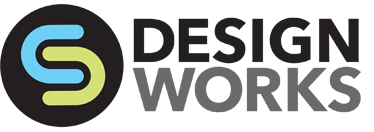Keywords: The Key to Search Engine Optimization
Posted on January 13, 2017
By Fredrick Ochoa

So you have a website but how do you get engaged users to visit?
Optimizing your website for search engines with the right keywords attracts organic visitors that are likely to convert.
Keyword research is the process of using different tools or software to determine what words or phrases you should use in order to rank higher on any given search result list. CS Designworks utilizes both Google AdWords and Moz Keyword Explorer to determine what keywords would work best for our clients (more on both of these tools later on).
Despite its importance, keyword research and SEO remains one of the most difficult and time consuming marking tactics to execute effectively1. This is because it requires constant testing, experimenting, and improvement2. When it is done effectively it easily becomes one of the most important assets to any marketing plan. As time passes SEO only becomes more important, as according to MarketingDive.com, “marketers see SEO as becoming more effective with 82% reporting effectiveness is on the rise”.
This article will lay out the basics of key word research, as well as how and why CS Designworks uses it to make our clients’ websites more visible.
Unlocking Keyword Research
1. Keywords Help You Stand Out
Google now handles over 2 trillion searches per year, without proper keyword research your website will never be found3. There is no use to having a beautifully designed website if it gets lost in the thousands of pages of search results.
Keywords not only allow your website to be found but can also be a powerful analytical tool to learn about more about your customer. The more you know about your customer the better, you can never have too much information. Properly using keywords can help you predict shifts in demand and better respond to and track changing marketing conditions.
Simply stated: keywords help customers find you and help you better understand what makes your customers tick.
2. Difficulty & Competition
With great power comes great competition. This means that doing research and finding out what keywords work best for you is essential.
There are two aspects you must examine simultaneously to find effective keywords: demand and difficulty. Demand is how many people are searching for that term. Difficulty is the work required to achieve high ranking on any given search result page. If you’re using the same keywords as well-established companies chances are you won’t be in the top results.
It’s all about finding the perfect balance between demand and difficulty. One way to do this is by using very specific phrasing or long tail keywords.
3. Long Tail Keywords
Long tail keywords are more in-depth phrases that visitors use when they are closer to a point-of-purchase4. For example instead of using the long tail keyword “conversion centered design” instead of just “design” is likely to result in more targeted views and a higher ranking on search results (Curious about conversion centered design? Read more about it here). While using simple and popular keywords that have over 5,000 searches a day might seem like the more attractive option those searches actually only account for less than 30% of searches a day2.
Think about it, are you more likely to buy shoes if you Google the term“shoes” or if you search the term “size 9 golf shoes”? The more specific a consumer is when they are performing a search the more likely they are to convert.
4. The Tools
Google AdWords and Moz are both great and widely used programs that allow you to do keyword research. Both platforms have several advantages and disadvantages; CS Designworks uses both tools in order to guarantee the best results possible.
Google Adwords’ calls their keyword research tool Keyword Planner. Keyword Planner’s greatest advantage is being able to narrow down keywords to your target demographic. You can break down a keyword search by location, language, and product category. The biggest disadvantage is that the user-interface isn’t the easiest to use. It’s primarily a number based interface and lacks visuals that can help to interpret data.
On the other hand this is where Moz’s Keyword Explorer shines through. Moz places a heavy emphasis on visuals and usability. The essentials are highlighted as colorful graphs that make the data easy to understand, even for the most novice users. The biggest downfall to Keyword Explorer is that you can’t see the difficulty for multiple keywords at once.
It’s as if Google AdWords’ Keyword Planner and Moz’s Keyword explorer were designed to be used in conjunction with each other. Where one falters the other soars, which is why CS Designworks uses both in-order to achieve maximum results.
What to do with the Data
There’s no point in doing the research if you aren’t going to apply it. Include relevant keywords in your headline, copy, and meta tags in order to start ranking higher in search result list and start gaining organic visitors to your site.
Pro Tip: include the keywords naturally in copy; Google and other search engines have algorithms that detect if someone is just plugging in keywords to gain traffic. Even if unnaturally flowing keywords don’t get detected by the algorithms, copy that seems like spam or is inorganic will turn visitors off to your site.
A Quick Review
Keywords and SEO should be an essential part of any digital marketing plan. They help you gain valuable customers and also help you better understand who is visiting your website. Although complex and time-consuming, they can be extremely effective and have an astronomical ROI if executed properly.
It is worth the investment to find someone who knows how to utilize SEO and keyword research to its fullest extent. Contact CS Designworks for a quote.
For further reading about Search Engine Optimizartion check out these articles:
Ranking on Page 1 on Search - That is the Goal
Search Engine Optimization Strategies
Sources
- http://www.marketingdive.com/news/study-creating-content-is-most-effective-and-most-difficult-seo-tactic/430335/
- https://moz.com/beginners-guide-to-seo/keyword-research
- http://searchengineland.com/google-now-handles-2-999-trillion-searches-per-year-250247
- http://www.wordstream.com/long-tail-keywords
Join Our Blog Community
@CSDesignworks


